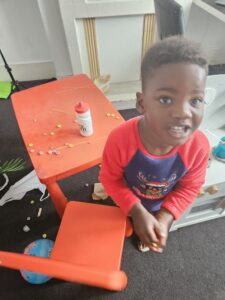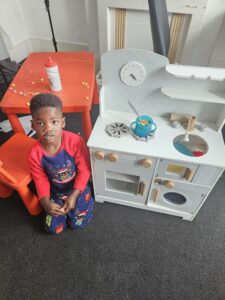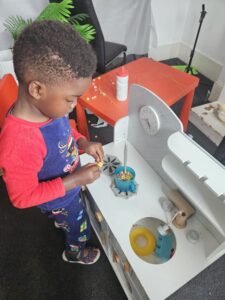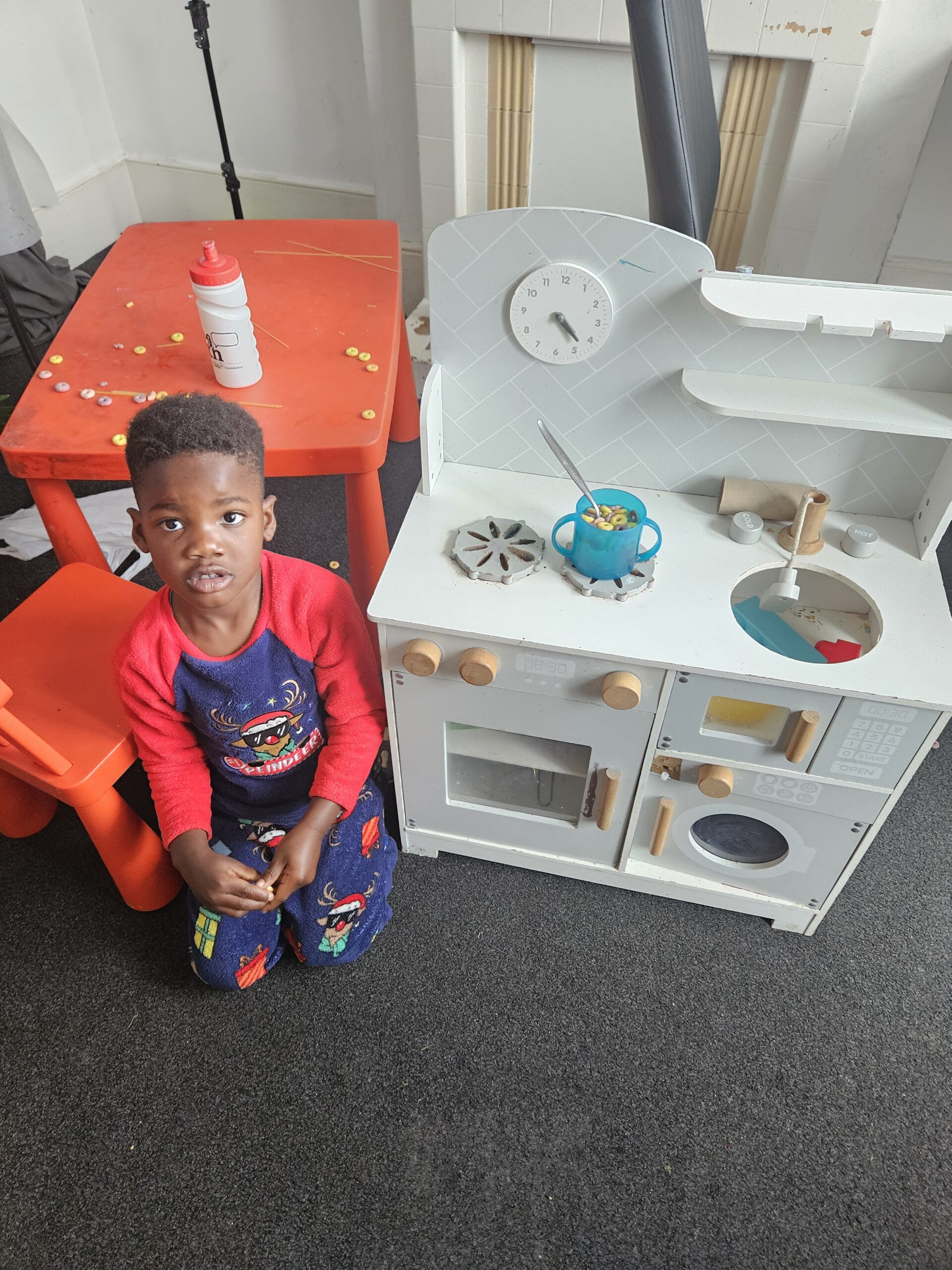Dealing with the daily challenges of parenting a child can often feel like walking a tightrope. Balancing empathy with discipline, structure with flexibility, and authority with understanding is no easy feat, especially with young children.

One common scenario many parents face is the power struggle over daily activities, such as TV time, playtime, or completing tasks. Recently, I encountered such a situation with my son, which highlighted the importance of handling these moments with care and empathy.
Let me tell you how I handled this problem with my son and what I learned from the experience.
On Fridays, my son and I usually go shopping together, but this Friday was different. My son, who just turned three, joined me in dropping his sister off at school in the morning.
Afterward, he asked, “Mummy, what are we doing today?”
I explained that we wouldn’t be shopping today because I had some tasks to complete. I told him I would get his toys out, set up the table for craft, and afterward, he’d have an hour of TV.
I asked him, “What would you like to do first? Play with your toys or do crafts?”
He responded, “Mummy, I want my Peppa Pig TV now.” I replied, “Sure, after you finish your craft and toy play.” Again, he insisted, “No, mummy, I don’t want to play with my toys or do crafts. I want TV.”
I asked, “Is it your TV Day today?” He said yes, even though he knows it’s not. I asked, “What day is it today?” He didn’t respond and started crying.

Here’s how I turned a tantrum into a learning and bonding opportunity
First, I used empathy. I carried him and said, “I understand that you are angry because you want your Peppa Pig TV before your playtime. I would feel same If I were in your shoes because TV is fun, exciting and relaxing. I can see it is sunny outside. Shall we go outside for 5 minutes of fresh air?” He looked at me without a word, at this point, he was already calming down.
We went outside and, fortunately, saw our neighbor’s dog, which he fed for a few minutes, brightening his mood. When we got back inside, I remembered he loves pretend cooking, so I asked, “Should I get your kitchen out and put it close to my work area so we can see each other?” He said yes.
I brought it out, got some cooking pots, water, spoons, etc., and that was it. He was fine. He was cooking and constantly brought his creations to my table, saying, “Mummy, I made this for you.” I’ll occasionally paused my work, and say to him, “Thank you,” and asked him how he made it and what he used, at the same time building his vocabulary. He showed a high level of concentration and spent a long time on this activity, clearly enjoying himself despite the mess. When he finished, he came to me and said, “Mummy, I have finished now. Can I have my TV?” sure you can I replied. I gladly turned it on for him before it was time to pick up his sister.

Here’s what I didn’t do
- I didn’t persuade him to play with his toys or do crafts. I allowed him to make that decision himself to satisfy his need for control and autonomy.

-
- I didn’t use logic for him. That is saying, “Golden, playing with your toys or doing crafts is good for your brain or learning.” Saying this may be overwhelming and confusing for him. I also, wanted it to be his personal choice and decision.

- I didn’t distract him by saying, “Oh! See that butterfly or ants, oh! Come and see, is moving,” look! Is there! just so I’m able to distract his attention and get him to stop crying. Distraction might not even work for him now because he’s turned 3 now. Also, I want him to learn to regulate his emotions. Otherwise, it will be me changing his state of mind without him really knowing what he was feeling at that time, that can obviously help him manage his emotions.

- I didn’t send him away.
This can be the hardest of them all, and I know some parents are guilty of this. A child is crying, disturbing, as well as distracting you, and the next thing you do or say is “Go upstairs, leave this place now, get out,” thinking you’re able to put a distance between you and your child. Also, thinking that the more your child is crying near you, the more irritated you’ll become, I’ll encourage you to leave where your child is instead of sending your child out. This you’ll do by explaining to your child how you’re feeling and how that feeling can cause you to regret your actions later on, and also remember to give your child the option of coming with you if they want so you both can calm down together. I know this is hard, but it is doable with regular practice.

Dear intentional parents,
Whenever you engage in a power struggle with your child, you risk losing your sense of authority and competence. Remember, true authority isn’t about control. Instead, it’s about fostering a positive relationship and emotional security. When we get into these battles with our child, we lose the good feelings we have about our child and weaken our parent-child bond. And guess what? Your child loses too. On the outside, it might seem like they’ve won, but on the inside, they feel unsafe and insecure.

So, what’s the solution?
Use empathy. Talk to your child. Be firm without giving in. This approach teaches them how to self-regulate their emotions. Show them that you understand their feelings, but also guide them towards making positive choices.

Quick Tip
Swap power struggles for power-sharing moments. Your child will feel heard, understood, and secure, paving the way for a more harmonious home and remember, parenting with empathy today builds emotionally strong child tomorrow.


